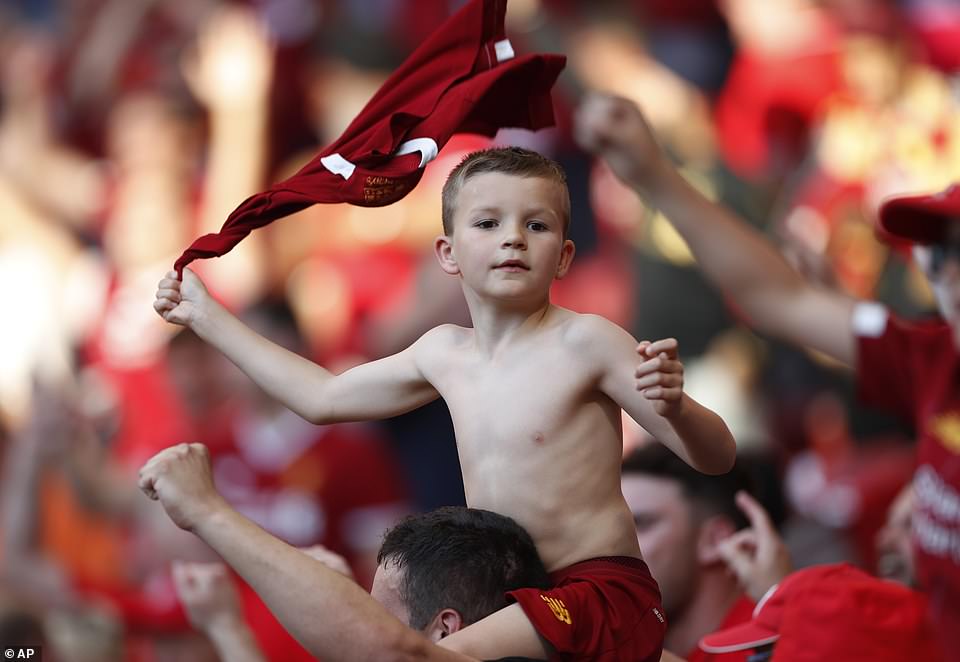Nowhere is the model we use more relevant than in the EFL because, when ticket sales and attendances are such important factors, then it has to be about more than just what takes place on the field of play.

The Model To Keep Football Off Its Knees

Mark Bradley
@fanexperienceco

Darren Young
@fanexperienceco
Mark and Darren work all over Europe helping associations, leagues and clubs to understand and improve fan engagement and their match day experience.
The Fan Experience Company was founded in 2005, and in 2019/20 they oversaw the assessment of over 350 games each season in 13 countries.
Just as the sight of players taking the knee confuses the hell out of some of England’s less emotionally and intellectually developed supporters, the word ‘sustainability’ can often mislead fans too.
It’s not – as some believe – about limiting ambition or muzzling clubs but it plays the long game rather than gambling on a quick leg-up. It’s also about recognising football’s immense power for good and using this to drive the game’s future, but in ways that protect the clubs from actions that might see them pushed to the brink of existence by unforeseen changes in circumstances. And we’ve seen that they can happen.
As the clubs, leagues and associations we work with know, we use a simple but highly effective model to guide football in the right direction.
As Trevor Birch (Chief Executive at the EFL) said on 3 June, ‘The EFL model needs to be about sustainability, not philanthropy or speculation’. The increasing gap in financial power between the Premier League and the EFL means that, in spite of the latter’s remarkable attendance records in recent seasons, tier 2, 3 and 4 clubs made collective losses of £243 million BEFORE the Covid-19 pandemic.
Birch rightly indicates the need for sustainability measures but it’s important that everyone in the game recognises that these should not exclusively be about cost control for, practised effectively, they can not only lift attendances, but extend a clubs’ reach into their communities and transform external perceptions of the game too.
The aforementioned model we use breaks sustainable growth into four key areas:
Identity – fans want to feel a part of the club and there is no better way than through its unique identity. But so few clubs currently maximise this to attract new fans.
Communication – this could also be engagement, but it’s the way that clubs talk (verbal and non-verbal, football and non-football) to fans and most importantly, listen to what they have to say as well.
Experience – there is no point attracting new people to a club if the experience is not a good one, and equally, clubs can’t create a great experience but have no one there to enjoy it. There is a balance; again one that clubs currently fail to find.
People – all of the above happens through people. Staff and volunteers, mascots, players, managers and everyone else can all play their part. It’s vital they do, as great people can really lift the matchday whereas poor performers can just as quickly make it negative.
One thing that many EFL clubs are doing is developing sustainable approaches to attendance growth and, in case you thought otherwise, that doesn’t mean simply lowering prices. What they are doing is better understanding the needs of those they wish to attract, creating experiences that engage them and then growing attendances on the back of the personal value and advocacy they create.
The EFL’s Family Excellence scheme: launched in partnership with us a decade and a half ago, is an example of how this can be accomplished for one particular group of supporters. In listening to fans, adapting to their needs and continually monitoring their feedback, clubs are able to capture the long-term loyalty of families and convert the youngsters into ‘fans of the future’.
It’s simply not just about promoting ticket offers or holding Family days either. As clubs refine their approaches to attracting and retaining fans, they’re seeing that a holistic approach is needed. The whole club must ‘buy in’ to family engagement, particularly on the match day when their roles evolve from safety to pro-active engagement with its moments of magic and lifetime memories. Leaders must emphasise why it is important and support that with measures. Match day experiences must be created in partnership with families with their resulting feedback in turn feeding the continuous improvement cycle. All of these should be connected in some way to the club’s identity, purpose and values. The simple, but effective, model at its most potent.
If we weren’t talking football, it would seem obvious. If they sound familiar, it’s because they are the strategies that the world’s best organisations use to build customer advocacy and growth. A progressive business doesn’t just sell a product and hope for the best. Rather, it develops a strong brand over time to emotionally connect with its customers. Ironically, football already possesses that deeper connection. It just hasn’t always connected that to challenges like filling the stadium.
In the first ten seasons of the EFL’s Family Excellence scheme, it is estimated the junior attendance grew by 37% – around six million new young fans. That’s mind boggling numbers but it’s just the start.
At a time when football has never been squeezed so much from the numerous threats like the pandemic, other – fast-growing – sports, economic pressures and breakaway leagues, it’s inevitably the younger fans are thrown into the spotlight. When we call them ‘fans of the future’ we really mean it. They, after all, are the generation that will see football continue to grow and eventually replace the fans that are there now.
Or not. For maybe the first time, there are no guarantees. When fans return in larger numbers in August, we’ll get our first full understanding of what 18 months without football has done. A belter of a summer and England winning Euro2020 might create a post-Italia 90 surge in the game’s popularity but a wet one, with England limping out early may see those 10-30% falls in attendances become a reality rather than just a concern.
What clubs (and football) cannot do it leave it to chance. If we have learned nothing else, relying on the English weather or its national team is not a sensible tactic. Rather, we need to be strategic about this and put a model in place that will protect against any eventualities and look to the longer-term, whilst continuing to move fans higher up the priority list.
By extending the principles we’ve outlined to all those existing supporters and the wider community, we can take a considerable step to strengthening our clubs and envisaging a much brighter future.
Want to read more by The Fan Experience Company?
Our white paper looks at the ways in which football clubs can get the right balance between safety and a great experience.
© The Fan Experience Company 2020

